Why is this superhero different than all other superheroes?
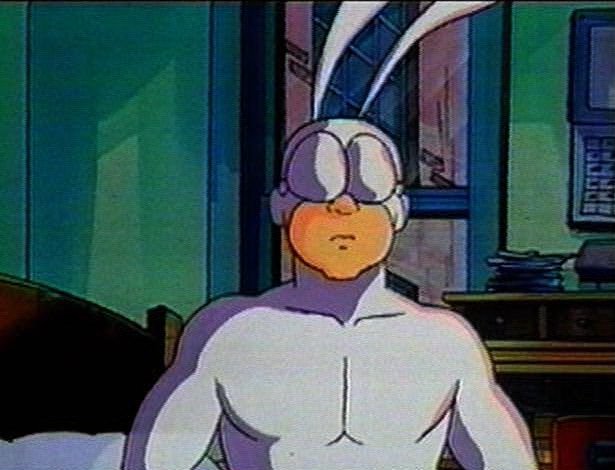 What do Shadowcat, the Thing, Songbird, Doc Samson, Sasquatch, Ragman, Vance Astro, Atom Smasher, Arthur (Not in the face!), Nite-Owl II, the Atom (Ray Palmer) and one half of the original Firestorm all have in common?
What do Shadowcat, the Thing, Songbird, Doc Samson, Sasquatch, Ragman, Vance Astro, Atom Smasher, Arthur (Not in the face!), Nite-Owl II, the Atom (Ray Palmer) and one half of the original Firestorm all have in common?They, like me, will be sitting down to the family seder tonight to celebrate Passover.
Religion in superheroic comic books is a complicated subject, even more than it is in the really real world. As a people, we can be strongly divided on our religious beliefs. Wars have been fought over people's different interpretation of the divine. Now, imagine how this subject becomes clouded when you have literal gods, angels and devils roaming the earth?
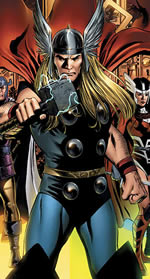 In the Marvel Universe, Thor doesn't claim to be a superhuman inspired by the ancient Norse god. He is Thor, God of Thunder. Ghost Rider is a demon merged with Johnny Blaze. Wonder Woman has had regular discourse with the Greek Gods and Goddesses, and the Spectre is the Angel of Vengeance.
In the Marvel Universe, Thor doesn't claim to be a superhuman inspired by the ancient Norse god. He is Thor, God of Thunder. Ghost Rider is a demon merged with Johnny Blaze. Wonder Woman has had regular discourse with the Greek Gods and Goddesses, and the Spectre is the Angel of Vengeance.The presence of superhumans simply must have had an impact on the religious institutions of their respective realities. If Thor walks down the street, talking about his father and the world tree Yggdrasil, then the church must address the inconsistency between that and the idea that the Earth was created in seven days.
It's easy enough for a priest to simply say, "Well, he's wrong. He's deluded. He's just a mutant with mental problems," but when the Frost Giants invade Manhatten, the issue becomes a little harder to avoid.
(One must also avoid the feet of said Frost Giants, but that's another matter entirely.)
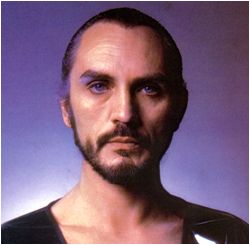 This doesn't even address superheroes who set themselves up as gods. Brother Blood has his own cult who worship him as a deity, and Cobra from Marvel has done the same.
This doesn't even address superheroes who set themselves up as gods. Brother Blood has his own cult who worship him as a deity, and Cobra from Marvel has done the same.And truthfully, when an invulnerable being who can throw a tank halfway around the world floats into the oval office and says "Zod, not God", how many of us are really going to argue?
Fortunately for the inhabitants of comic book Earths, for each of these psychopaths who try to set themselves up as gods, we have a superhero who is there to say "Not so much." There but for the grace of Kal-El...
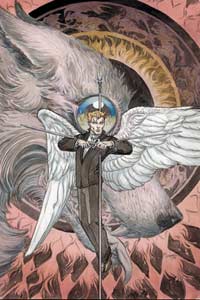 Comic creators have tended to shy away from confronting this head-on. A being identifiable as the Judeo-Christian diety has shown his presence in both Marvel and DC comic, while the Greek, Norse and many other pantheons of gods exist as well. No one seems willing to address the issue of conflicting creation myths in these situations. Indeed, both Marvel and DC have shown theories that don't include the actions of any recognizable diety. And DC's Vertigo imprint has an entire series dedicated to Lucifer.
Comic creators have tended to shy away from confronting this head-on. A being identifiable as the Judeo-Christian diety has shown his presence in both Marvel and DC comic, while the Greek, Norse and many other pantheons of gods exist as well. No one seems willing to address the issue of conflicting creation myths in these situations. Indeed, both Marvel and DC have shown theories that don't include the actions of any recognizable diety. And DC's Vertigo imprint has an entire series dedicated to Lucifer.There are lots of reasons to dance around the issue. The last thing any publisher wants to do is alienate their readers who have strong religious faith, and any definitive "This is the right answer" would do that. But I think there's another reason. Superheroes have created their own mythology. Superhero stories don't serve the primary function of any religion's myths, in that they don't (usually) explain where we came from, or what happens when we die. But the lessons in their pages are just as applicable as the lessons that the ancient Greeks learned from hearing the tale of Odysseus.
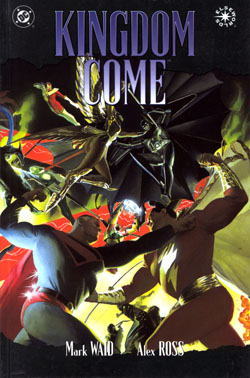 And that's why if you look on my bookshelf, you'll see the The Iliad and The Epic of Gilgamesh sitting proudly next to Kingdom Come.
And that's why if you look on my bookshelf, you'll see the The Iliad and The Epic of Gilgamesh sitting proudly next to Kingdom Come.(And a special thank you to the people who put together this list of superheroes and their religious beliefs.)


6 Comments:
Batman's a Catholic? It makes so much sense!
*reading list* I love how J.J. Jameson's religion is listed as "hates Spiderman"
Shalom and Happy Passover!
I just wanted to say I enjoy reading your stuff (via blogmad)- I'm a closet superhero fan.
I just wanted to say I enjoy reading your stuff (via blogmad)- I'm a closet superhero fan.
May you and your family have a good evening. Happy Easter for you all!
I really liked your points and especially loved how you equated superheroes as being their own mythology. Another thing to think about is that monotheistic belief as society's primary philosophy is a relatively new thing in human society. Many faiths, even today and including early Judeo-Christian beliefs, allow for the existence of other pantheons of gods. Shinto, Buddhism and I believe Hindu still fit that bill today.
Post a Comment
<< Home